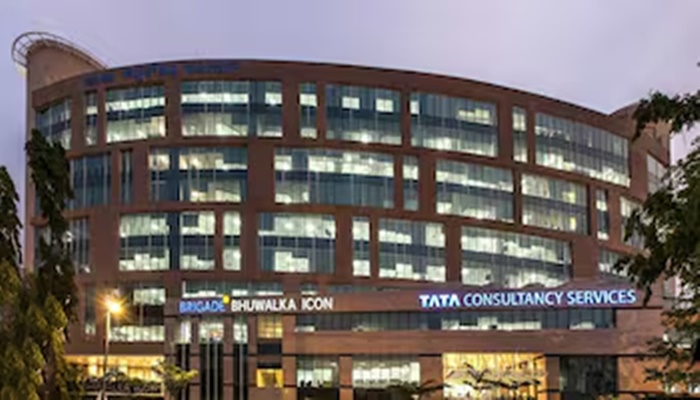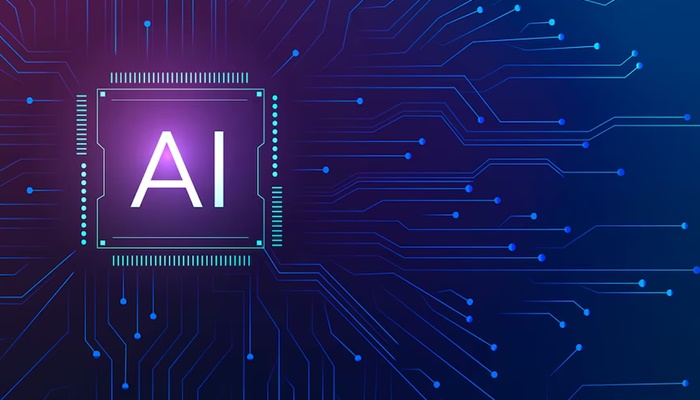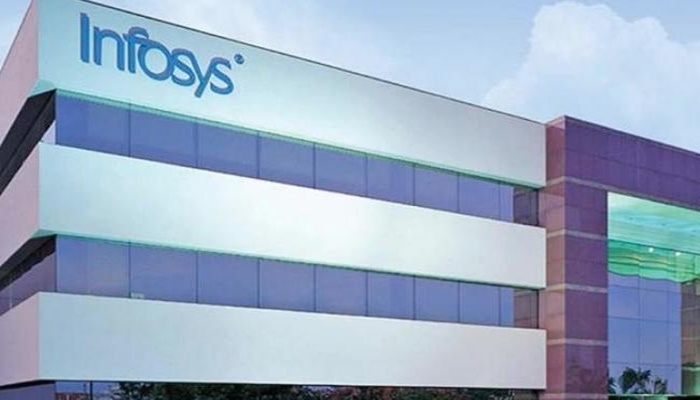Richard Lobo, chief people officer at Tech Mahindra, shares his insights on the evolving workplace, the changing role of managers, and how organisations can balance technology advancement with human capabilities. In this exclusive interview with Dr. Prajjal Saha, founder and editor of HRKatha, Lobo discusses how businesses are redefining talent acquisition, performance management and career development in the age of AI.
Q: Organisations must transcend rigid roles and hierarchies to achieve business agility. Yet we see a persistent trend of hiring based on past experiences rather than potential. How do you envision a future where skills and adaptability take precedence over CVs? When might this shift become mainstream?
A: Organisations always try to balance the need for adaptability against the comfort of credentials and past experience. This shift won’t happen suddenly, but as business models change, companies will need to hire people who are more adaptable and flexible rather than relying solely on what candidates have done previously.
I believe in a few years, we’ll see greater focus on skills—what a person can do and achieve—while experience, years of service, and educational background will become less relevant. At entry level, credentials might still matter, but for specific roles, the emphasis will shift.
Several factors will accelerate this change: AI and technology that can better validate credentials in real-time, changing business models, and the rise of work packets rather than permanent positions. It’s a process of adaptation for both employers and employees, as neither wants to abandon what has worked well for something uncertain.
Q: So you’re seeing that when this change happens, it will occur mostly in lateral hiring rather than entry-level recruitment?
A: Yes, because that’s where it’s more required. Entry-level hiring will likely remain credential-based simply because there’s no better way to verify capabilities other than creating your own system of assessment.
Internal promotions will change faster though. I can already see that companies are promoting people based on abilities rather than experience or tenure. Career advancement within an organisation will definitely transform more quickly.
Q: As automation and AI redefine industries, the human element in workplaces becomes even more critical. How can organisations balance this dichotomy—leveraging technology while enhancing distinctly human traits such as creativity, empathy and collaboration?
A: Companies must balance both because workplaces become interesting environments due to their human nature. Humans bring unique abilities—there’s joy in meeting others, learning differences, working together, and generating fresh ideas.
At the same time, technology is essential for efficiency. Companies will need to redesign work, determining which parts require human input and which can be handled by technology. The focus should be on how humans and technology can collaborate rather than substituting one for the other.
Organisations will need to revisit what makes them successful—their culture, unique offerings, and purpose. The question of purpose will become crucial in attracting key talent. It’s a process of evolution where both humans and technology adapt together to transform work into something different from what we’re accustomed to. I’m optimistic that what we’ll achieve will be interesting and challenging for whoever inhabits the workplace of tomorrow.
Q: Will this change vary by sector, or will it be industry-agnostic?
A: I don’t think it will vary significantly by sector. Technology is now sector-agnostic—whether you’re running a manufacturing plant or an IT firm, everything incorporates technology. The pace of evolution might differ; some companies will adapt faster than others based on their operations. However, the rapid spread of information means it’s just a matter of time before best practices are widely adopted.
Q: With trends like self-managed teams and agile methodologies, do you see the traditional role of managers being redefined or eliminated?
A: ‘Redefined’ is certainly a better word than ‘eliminated’. A manager of the future will need to oversee both technology and people. They’ll need to be experts in their field, managing technology (including bots and agents) alongside human resources to achieve outcomes.
Managers will have greater responsibility for results while simultaneously cultivating culture, facilitating learning, and coaching. Rather than eliminating the role, we’ll need ‘super managers’ with different skill sets from today’s managers. The aspiration to become a manager simply because you’ve spent a certain amount of time in a role will diminish.
It’s similar to what we see in manufacturing, where supervisors now manage both machines and people. On an automobile plant floor, there are fewer managers, but they perform different roles—managing work output, productivity, people, robots and machinery.
Q: Studies suggest significant distrust in current performance management systems among employees and leaders alike. What’s the core purpose of performance management today, and how do you see these systems evolving to remain relevant and trustworthy?
A: The distrust stems from two areas. Firstly, performance management typically measures past achievements rather than future potential. Secondly, people aren’t properly trained to conduct performance discussions, often treating them like an unpleasant medical procedure.
Consider how we maintain vehicles: modern cars continuously provide feedback through sensors, and the manufacturer’s systems alert you when maintenance is needed. Similarly, technology now enables continuous feedback in the workplace through the abundance of available data.
Future performance management systems will be continuous rather than periodic reviews of past performance. They’ll focus on helping individuals perform better, with transparent metrics that don’t require manager intervention to understand.
A system that’s future-focused and coaching-oriented will improve outcomes. Technology and systems are advancing, but managers need proper training. Companies must invest in training both those who give feedback and those who receive it, fostering collaboration rather than confrontation.
Q: Is the lack of effective performance management merely due to insufficient training for line managers?
A: It’s a combination of factors—processes, information gaps, technological limitations, and training deficiencies. People often resist changing long-established systems, so improvement requires effort across all these areas.
Q: For early career professionals, the dilemma often lies between pursuing prestigious degrees versus developing exceptional skills. What would be your advice? Should they focus on credentials or capabilities?
A: I’m hesitant to give advice, but I believe everyone should view degrees and credentials as stepping stones—entry points that won’t sustain your career long-term. Many people rely on their educational background for too long, not realising that education today isn’t a one-time achievement.
Whatever you learn becomes outdated within five to ten years, so continuous learning and evolution are essential. Many professionals fail to understand this, believing their initial education will carry them throughout their career.
Consider other professions: pilots transition from largely manual aircraft to highly automated ones, and surgeons adopt robotic techniques after decades of traditional surgery. Management shouldn’t be exempt from this evolution. After some time, your institution becomes less relevant than how well you’ve maintained and updated your skills.
Credentials may open doors, but skills keep you relevant. People can enter professions without traditional credentials, so focusing too much on which institution you attended matters less than what you do afterwards.
Q: As technology dominates industries, will degrees outside technology fields retain their value? How can non-tech professionals future-proof their careers?
A: I have a broad perspective on this. What you studied doesn’t necessarily matter—it reflects what interested you at a particular time. I’ve seen people with non-technical degrees excel in technology fields and vice versa. Your ability to learn and your interests are more important.
Technology has become easier to understand—it’s no longer exceptionally difficult to master if you apply yourself.
The future belongs to interdisciplinary competence: combining artistic skills with customer interface design, understanding banking domains alongside technology, etc. These combinations will make a difference rather than any particular degree.
Many universities now recognise this, allowing students to pursue multiple disciplines rather than restricting them to one. It’s not either/or—balancing multiple areas makes you more adaptable.
Q: Tech Mahindra operates in a unique space with roots in the larger Mahindra group, traditionally a manufacturing-focused conglomerate. What cultural distinctions did you notice compared to other IT companies, and how does the Mahindra legacy influence the work culture?
A: Mahindra is an iconic Indian company with interests spanning many fields, with technology being increasingly pervasive across all of them. What Mahindra has beautifully maintained is a unique culture focused on sustainability, upliftment, and inclusivity.
What I appreciated when joining was this inclusive culture where ideas are welcomed. People benefit from the group’s knowledge while having freedom to operate independently. The encouragement for collaboration, cross-movement between companies, and focus on building world-class products creates an environment where each group company can flourish.
Q: What aspects of Tech Mahindra’s culture stand out when viewed as an independent entity?
A: We’re building a global IT services company that helps clients worldwide solve business problems through technology. Over the past year, we’ve developed a three-year vision focusing on becoming a leading IT services company, working on artificial intelligence, new technology deployment methods, and meeting evolving client expectations.
We’re focusing on establishing the right leadership, creating effective training and learning mechanisms, and enhancing our culture to prepare for future challenges.
Q: Given Tech Mahindra’s broad portfolio spanning telecommunications, manufacturing and financial services, how do you facilitate internal talent mobility across these diverse domains without compromising domain expertise?
A: One of our largest focus areas has been knowledge and learning, especially given the rapid changes in the tech space. We encourage people to move between technologies and verticals, with a stated goal of developing future leadership from within.
We’ve encouraged leaders to step up and take roles in unfamiliar domains, while implementing succession planning for key positions that includes rotations and leadership development programmes. We’re creating both company-specific and group-level leadership programmes, without boundaries between them. We welcome managers moving between Tech Mahindra and other group companies, while also developing leaders specifically for Tech Mahindra’s needs.
Q: How has Tech Mahindra evolved its compensation philosophy to balance team-based delivery models with individual performance differentiation, particularly for specialised technical roles?
A: We strive for fairness, benchmark against market standards, and reward both individual and team performance. We adjust quickly based on market conditions, paying premiums for in-demand skills and roles while rewarding good performance through incentives.
Our approach to the employee value proposition seems effective, as our attrition rates are lower than many similar companies.
Q: How would you reward someone who’s a great individual performer but part of an underperforming team?
A: It’s always a combination. If an individual performs well but their team doesn’t, they should receive their individual incentive but might not get the team incentive. Conversely, if the team performs well but an individual doesn’t excel, they’d get the team incentive. We also factor in skills when determining compensation. Modern compensation isn’t straightforward—it requires a dynamic approach and willingness to adapt.
Q: As Tech Mahindra implements AI across its operations, what specific governance frameworks have you established to ensure these systems reinforce rather than undermine your organisational values and ethics?
A: Our philosophy centres on responsible AI usage with freedom to experiment, but under leadership oversight and guided by principles: human-centric approaches, transparency, fairness, non-discrimination, and protecting privacy and data.
We apply the same strong governance models we use for client data across the world to our AI experimentation.
AI isn’t separate from other technologies—it’s a continuum that requires the same principles of responsible development.
Q: Should we be concerned about AI implementation across the industry?
A: I’d say we should be aware rather than fearful. This is something new that everyone is experimenting with, and awareness helps us take proper precautions. Technological progress has always required experimentation, but with appropriate safeguards. Most pioneers in chemistry or other fields were aware of potential risks and took precautions. Human progress requires experiments, but conducted responsibly.
Q: Anand Mahindra advocates integrating liberal arts education with technical fields, saying even engineers and business professionals should study art and culture. How has this philosophy translated into talent practices at Tech Mahindra?
A: While we don’t necessarily implement specific initiatives based on every idea Anand Mahindra shares, I agree with his perspective on integrating liberal arts with technology. This integration is becoming more common across companies.
We need professionals who understand technology but are also socially aware, ethically grounded, and creatively agile—qualities that liberal arts education fosters. Technical skills can be added to this foundation.
Our future needs are for “connectors”—people who link human insights with technology. That’s what we’re trying to build: a workforce that bridges these two worlds. That’s our endeavour, and hopefully, we’ll get there.




















